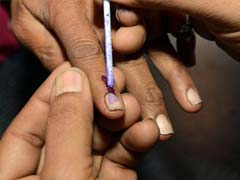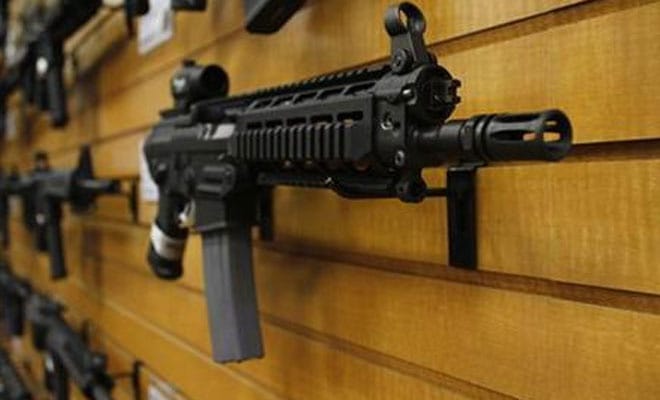By David Lalmalsawma
The two-decade-long Mizo rebellion from 1966 to 1986 remains the only conflict in which the Indian government used war planes against its citizens. Few written records exist on the conflict in which the Mizo National Front (MNF) revolted against the government, trying to establish an independent country.
A new book by a former militant in the Mizo National Army (MNA), the armed wing of the MNF, recounts the air bombings and the government’s “grouping” policy, under which villages in what is now Mizoram state were burned and civilians relocated to guarded centres called Protected and Progressive Villages.
“Untold Atrocity” by C. Zama deals with incidents in which civilians suffered or were allegedly killed by security forces. The book also assumes significance today because the Armed Forces Special Powers Act (AFSPA), which allowed security forces an almost free hand in arresting or shooting anyone during the insurgency, is still enforced in Jammu and Kashmir and some areas of India’s northeast.
Zama in this interview talks about the almost unlimited powers the army wielded during the insurgency, and why the Mizoram Accord, which is touted as the most successful peace treaty in India, has not been fully implemented.
Q: Tell us about your time as an insurgent?
A: In 1965, before the violence started, I volunteered as a MNA member while studying in high school … I was in Class VIII when the [armed] movement broke out, so I left home and school and we started living in the forest. We traded fire with Indian soldiers many times – in Mizoram and (East) Pakistan, which is present-day Bangladesh.
In 1974, I was captured twice, but managed to escape on both occasions before reaching prison. In 1975, I was captured again, and this time, I was unable to escape. I was tortured badly and could not walk. After just two nights in jail, I was transferred to a hospital. After two months there, I was transferred back to jail. In 1977, I got out on bail.
Q: So torture was routine?
A: Yes, definitely. And we could not cope with torture so many fighters gave away the location of friends and our camps, gave away guns and revealed the identities of people [civilians] who helped us. But the level of bravery is different for different people, so we can’t really blame anybody in such situations.
Q: You’ve written 19 books in the Mizo language. Tell us some of the incidents you mentioned in your new book in English that you haven’t disclosed before?
A: The two women who lost their sanity after being raped – this book is the first time I’ve mentioned them. Also, the people of Vathuampui [village] where security forces tortured innocent villagers and killed nine people. They [security forces] just came, lined up people and shot them … They did similar things to other villages. Some of the incidents in the book have been rehashed from my earlier books, but there are also quite a few fresh ones I’ve included.
Q: So they shot people without provocation?
A: Yes, innocent people. Also, a havildar [non-commissioned officer] had more power than a DC [deputy commissioner]. For instance, if a soldier shot dead someone, he can simply say the person was an MNF supporter, and that was justification enough. Or if he raped someone, he just says she is an MNF supporter. Nobody could do anything.
Q: So security forces abused their power?
A: They were really bad. There was hardly any village they did not burn down. Even without getting orders from the government, majors on the ground burnt villages on their own volition. In Chhawrtui, villagers were herded inside their houses and locked up. And the major gave the order to burn the houses with all the people in them. But the captain refused and argued with him. They eventually did not burn the houses.
Q: As a former fighter, were you satisfied with the peace treaty?
A: The accord said Mizoram would have a High Court, which has not happened yet. Secondly, the rent for properties and land occupied by security forces, 90 percent has not been paid 27 years [after the peace accord]. And three of our friends still have [legal] cases. They [government] dishonoured the accord in these three instances.
Q: What message are you trying to send with this book?
A: Nobody talks anymore about the hardships we went through during the time of disturbance. If we don’t write about it, the new generation will not know about it. Also, there are some sections who are saying that the air raids never took place.
Q: Was it difficult to interview people on such a difficult phase of their lives?
A: Yes. Some were reluctant to open up, while some tend to exaggerate a bit. So I had to be very careful. Especially in the case of rape, no surviving victim agreed to personally speak about their trauma.
The two-decade-long Mizo rebellion from 1966 to 1986 remains the only conflict in which the Indian government used war planes against its citizens. Few written records exist on the conflict in which the Mizo National Front (MNF) revolted against the government, trying to establish an independent country.
A new book by a former militant in the Mizo National Army (MNA), the armed wing of the MNF, recounts the air bombings and the government’s “grouping” policy, under which villages in what is now Mizoram state were burned and civilians relocated to guarded centres called Protected and Progressive Villages.
“Untold Atrocity” by C. Zama deals with incidents in which civilians suffered or were allegedly killed by security forces. The book also assumes significance today because the Armed Forces Special Powers Act (AFSPA), which allowed security forces an almost free hand in arresting or shooting anyone during the insurgency, is still enforced in Jammu and Kashmir and some areas of India’s northeast.
Zama in this interview talks about the almost unlimited powers the army wielded during the insurgency, and why the Mizoram Accord, which is touted as the most successful peace treaty in India, has not been fully implemented.
Q: Tell us about your time as an insurgent?
A: In 1965, before the violence started, I volunteered as a MNA member while studying in high school … I was in Class VIII when the [armed] movement broke out, so I left home and school and we started living in the forest. We traded fire with Indian soldiers many times – in Mizoram and (East) Pakistan, which is present-day Bangladesh.
In 1974, I was captured twice, but managed to escape on both occasions before reaching prison. In 1975, I was captured again, and this time, I was unable to escape. I was tortured badly and could not walk. After just two nights in jail, I was transferred to a hospital. After two months there, I was transferred back to jail. In 1977, I got out on bail.
Q: So torture was routine?
A: Yes, definitely. And we could not cope with torture so many fighters gave away the location of friends and our camps, gave away guns and revealed the identities of people [civilians] who helped us. But the level of bravery is different for different people, so we can’t really blame anybody in such situations.
Q: You’ve written 19 books in the Mizo language. Tell us some of the incidents you mentioned in your new book in English that you haven’t disclosed before?
A: The two women who lost their sanity after being raped – this book is the first time I’ve mentioned them. Also, the people of Vathuampui [village] where security forces tortured innocent villagers and killed nine people. They [security forces] just came, lined up people and shot them … They did similar things to other villages. Some of the incidents in the book have been rehashed from my earlier books, but there are also quite a few fresh ones I’ve included.
Q: So they shot people without provocation?
A: Yes, innocent people. Also, a havildar [non-commissioned officer] had more power than a DC [deputy commissioner]. For instance, if a soldier shot dead someone, he can simply say the person was an MNF supporter, and that was justification enough. Or if he raped someone, he just says she is an MNF supporter. Nobody could do anything.
Q: So security forces abused their power?
A: They were really bad. There was hardly any village they did not burn down. Even without getting orders from the government, majors on the ground burnt villages on their own volition. In Chhawrtui, villagers were herded inside their houses and locked up. And the major gave the order to burn the houses with all the people in them. But the captain refused and argued with him. They eventually did not burn the houses.
Q: As a former fighter, were you satisfied with the peace treaty?
A: The accord said Mizoram would have a High Court, which has not happened yet. Secondly, the rent for properties and land occupied by security forces, 90 percent has not been paid 27 years [after the peace accord]. And three of our friends still have [legal] cases. They [government] dishonoured the accord in these three instances.
Q: What message are you trying to send with this book?
A: Nobody talks anymore about the hardships we went through during the time of disturbance. If we don’t write about it, the new generation will not know about it. Also, there are some sections who are saying that the air raids never took place.
Q: Was it difficult to interview people on such a difficult phase of their lives?
A: Yes. Some were reluctant to open up, while some tend to exaggerate a bit. So I had to be very careful. Especially in the case of rape, no surviving victim agreed to personally speak about their trauma.














